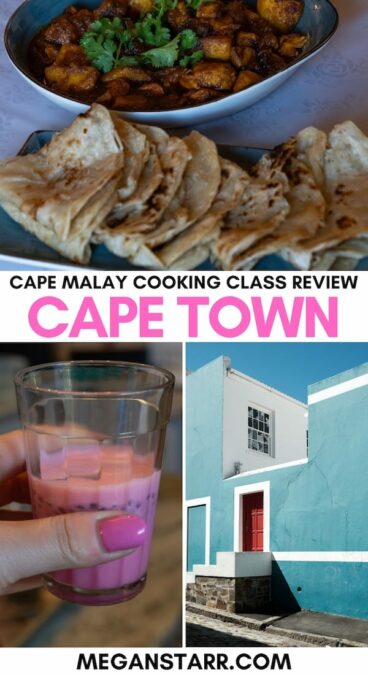I had a long list of things I wanted to do in Cape Town pending I ever made the journey there, so when I bought myself a plane ticket, I was happy to finally be able to turn some of those dreams into reality.
And one of them was to take a Cape Malay cooking class in Cape Town!
If youʻre booking your trip to Cape Town last minute, we have you covered. Below are some of the top tours, and more!
🇿🇦 Top tours and activities in Cape Town:
- Cape Malay cooking class (reviewed below – loved it!)
- Wine tour from Cape Town (top-rated day trip option)
- Cape of Good Hope + penguins tour (great highlights tour!)
🛌 Top hotels and places to stay:
- Central Beach Villas (where I stayed in Camps Bay; sea views)
- Urban Oasis Aparthotel (in CBD)
- Casa del Sonder (De Waterkant, great location)
🚗 Visiting Cape Town independently? Be sure to book your South Africa rental car ahead of time to ensure availability!
In this guide, I discuss my experience taking a Cape Town cooking class as well as some useful tips to help you prepare for your culinary adventure (which, for me, was mostly making my partner do all the hard work).
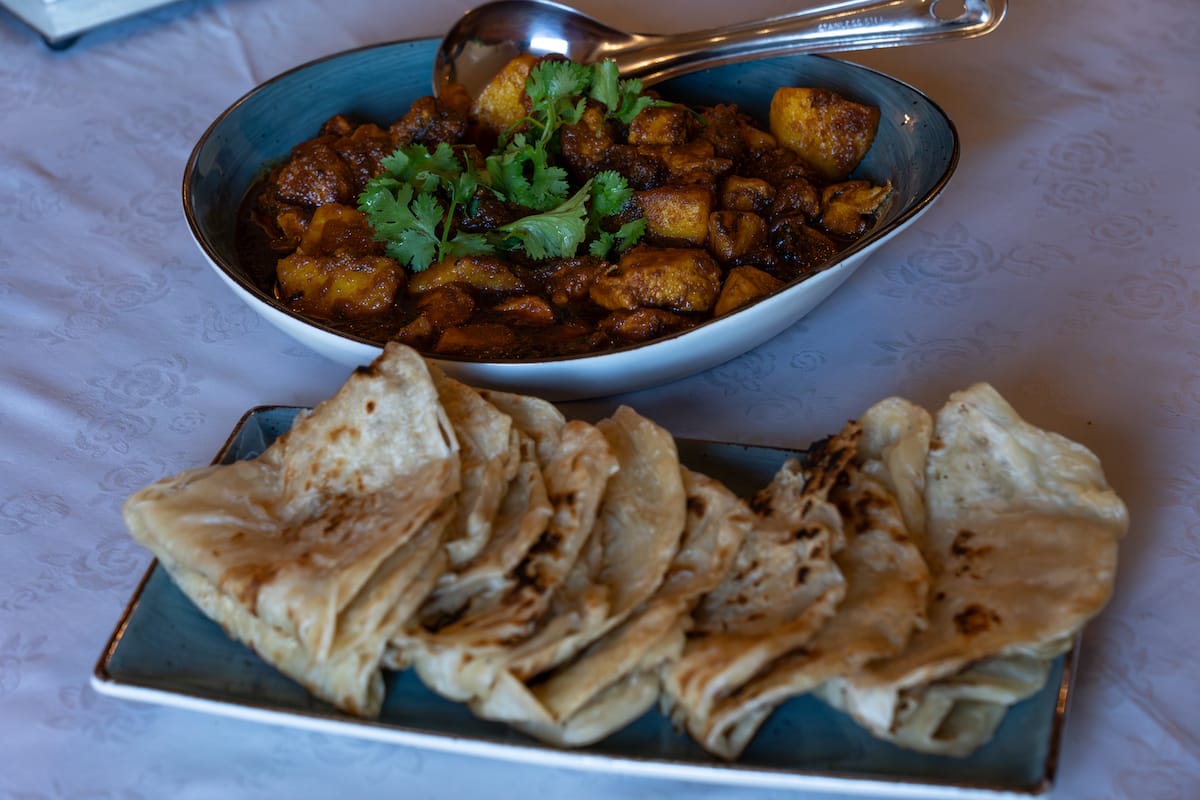
There are many classes out there, so I can only vouch for the specific one I took (I will give a link to it), but I do believe that taking a Cape Malay cooking class in Bo-Kaap is an itinerary essential! It is also pretty affordable (and your meal is included).
Let me know if you have any questions about the cooking class in the comments. Thanks!
About Cape Malay Food (& Why You Should Take a Cooking Class!)
Cape Malay food is a delicious (and super flavorful!) cuisine that is a fusion of different cultures, influences, and people.
It is native to the Western Cape area and was primarily the cuisine of the Malay, who were brought to Cape Town and the region and enslaved.
The cuisine can trace itself back to the 1600s when the Dutch brought over people from East Africa, Malaysia, and Indonesia and enslaved them.
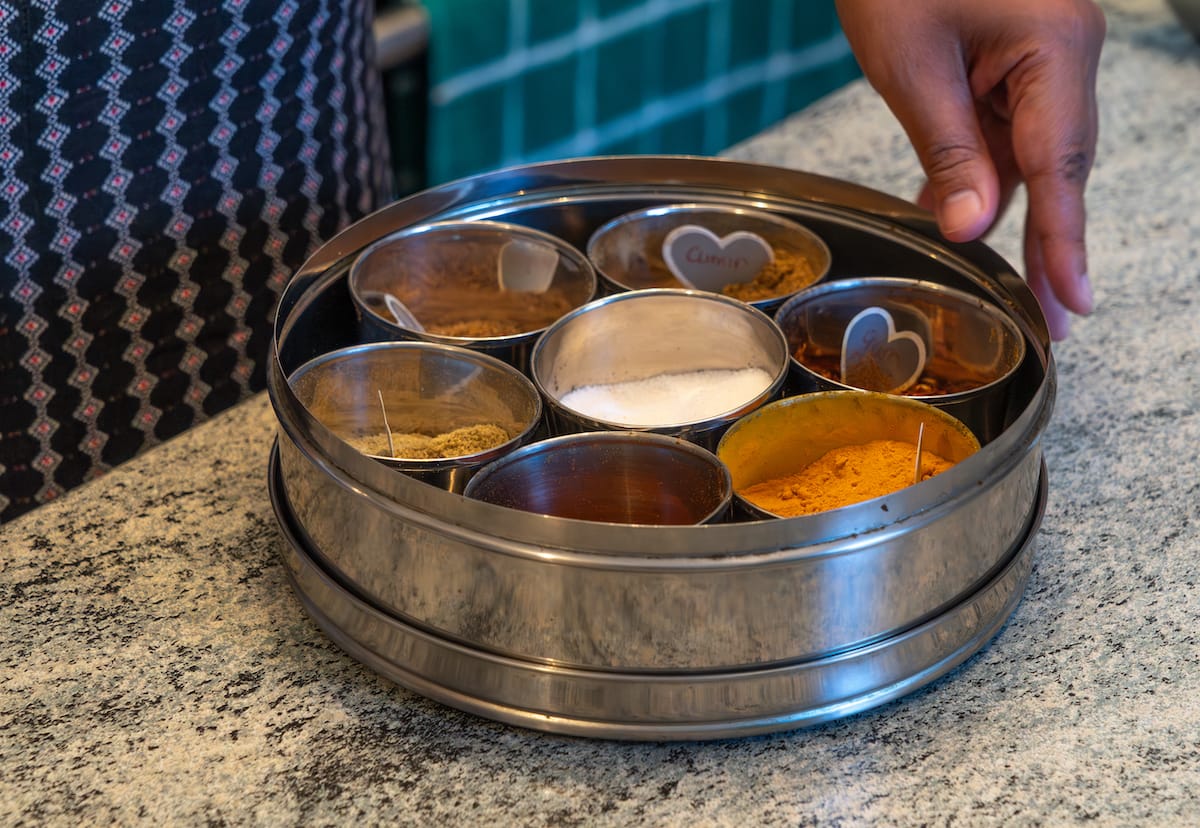
Their different backgrounds and cultures fused the unique cuisine that you can enjoy in Cape Town today (and learn how to cook in one of these classes).
Some common ingredients in Cape Malay cooking are ginger, nutmeg, chili, allspice, cinnamon, and hot peppers.
Paired together with meat, vegetables, and a variety of grains, it is aromatic and delicious.
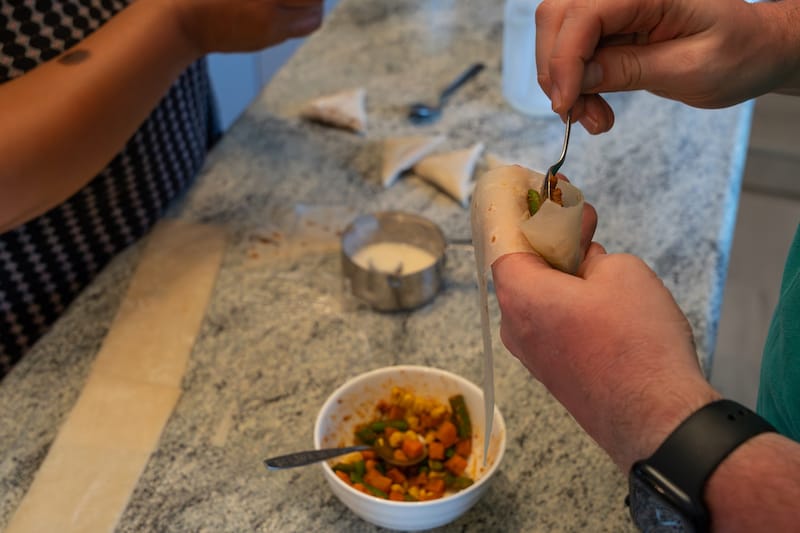
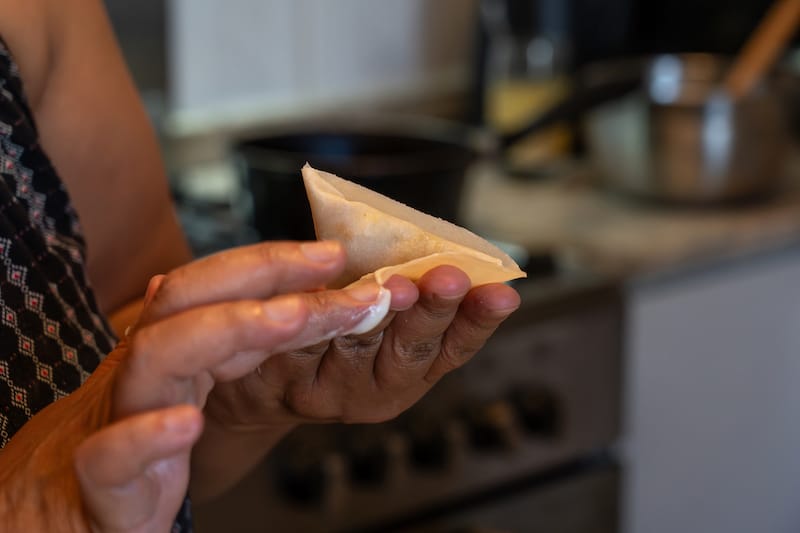
A few famous dishes from Malay cooking are bobotie (I had a friend from Durban who used to make me this!), biryani, and koeksisters (a sweet treat).
How to Book this Cape Malay Cooking Class in Cape Town
I book almost all of my tours through GetYourGuide, an online platform that specializes in finding the best tours with the most reliable companies.
The reason I love booking with them is that I can book all of my tours at the same time and pay for them in one session rather than spending hours sending my credit card to different systems.
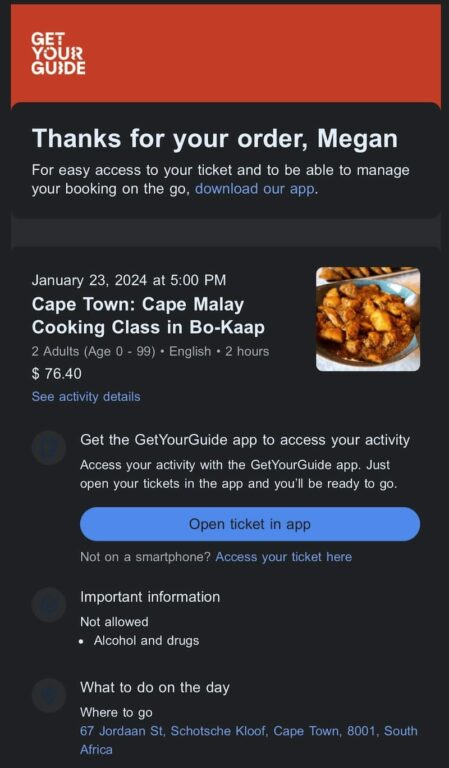
It is especially useful in Cape Town, as I had like 7 tours and experiences booked there!
The Cape Malay cooking class in Cape Town was booked and confirmed instantly and then I was sent a reminder the day before my class.
Very easy and reliable. Another cool thing is that after my cooking class, the host sent me the recipes through my GYG contact information so I could keep them on file and recreate some of the dishes myself.
Cape Malay Cooking Class: My Experience
⏰ Duration: 2 hours
📍 Meeting point: 67 Jordaan St, Schotsche Kloof, Cape Town 8001 (Bo-Kaap)
🌎 Language: Afrikaans, English
➡️ BOOK HERE
We arrived about 1 hour early to this class (thank you, my anxiety) and hung out in Bo-Kaap, exploring the coffee shops and vibrantly colored buildings before heading to Jordaan Street, where the class was being held.
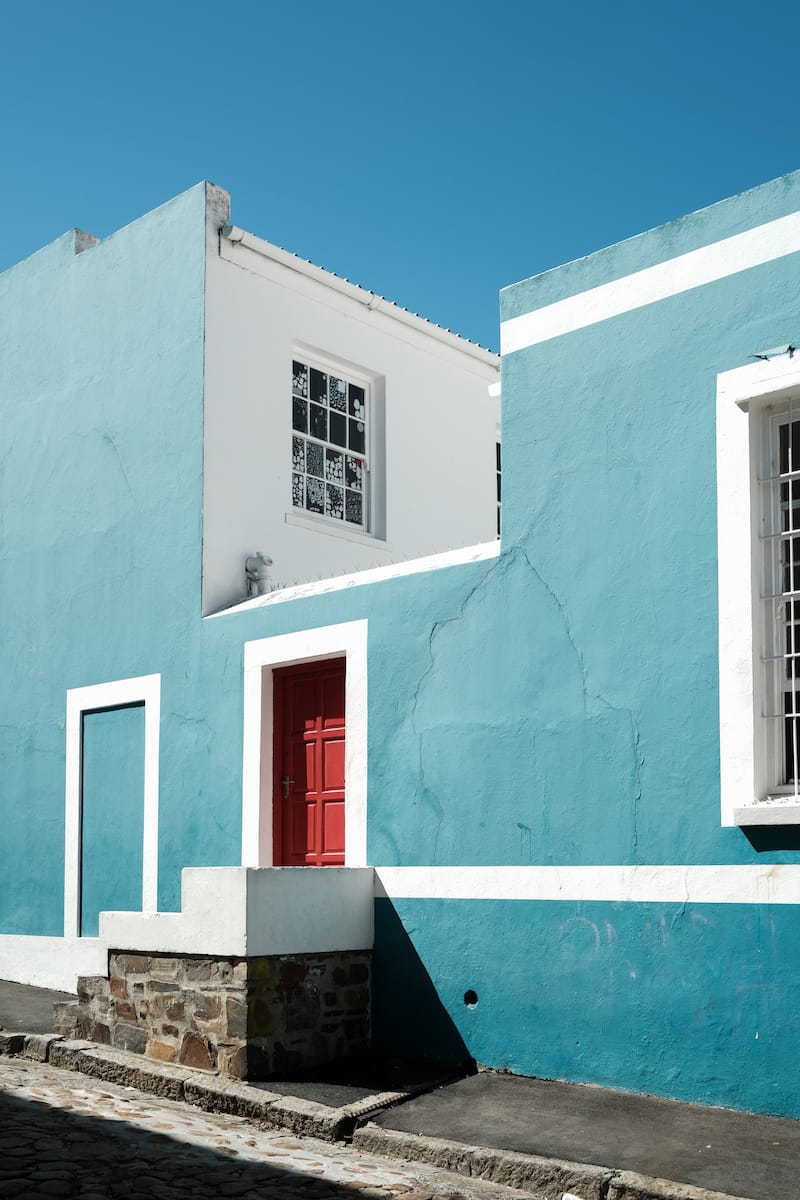
Once we arrived, we were greeted by the nicest family. The Cape Malay cooking masterclass was founded by Jasmina and today, her daughters Shafeeqah and Niemah run it in the evenings.
Ed and I ended up being the only ones at our class that day, so it was essentially a private lesson, which was nice as I was going to take photos and videos and make Ed do the hard part (trust me, it is better this way since we were eating the food right after!).
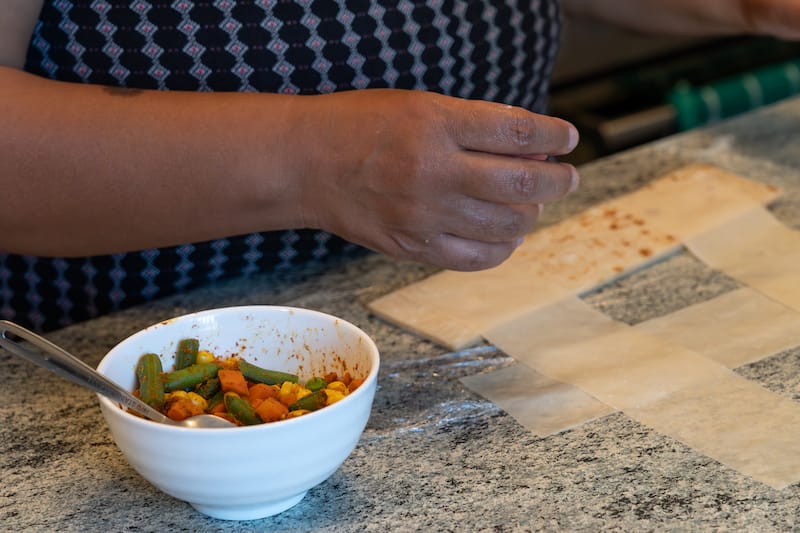
When we arrived, a lot of the food was prepped and ready for the class to begin (some dishes need hours of preparation!).
We were handed a falooda, a creamy milkshake with vanilla ice cream and rose syrup. It was delicious! It also contains a digestive seed like chia.
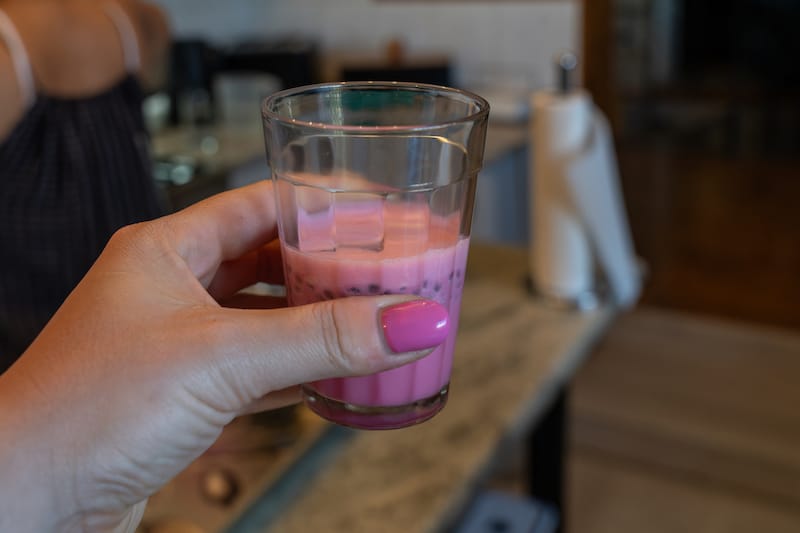
We started making the starters which were samosas (filled with vegetables) and chili bites (also known as daltijies in Cape Town). The chili bites are deep-fried and prepared with chickpea flour, spinach, potato, and fresh chilis.
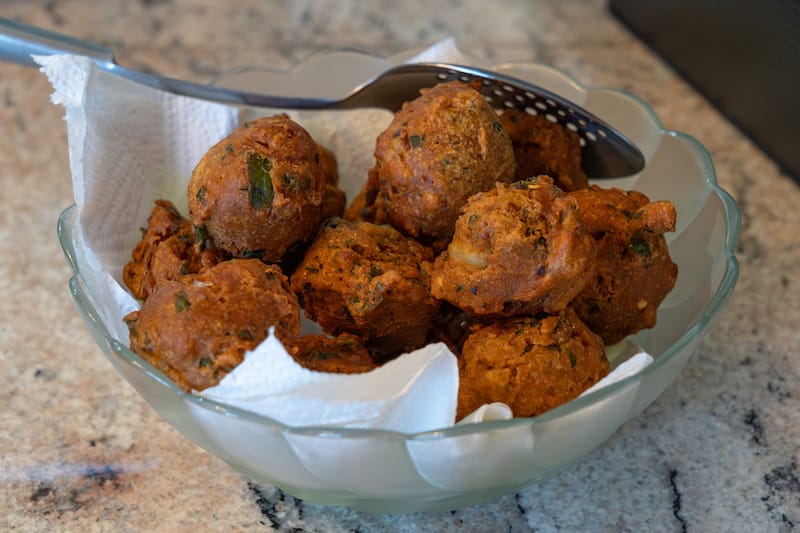
For the main course, we made a chicken curry (with an array of Malay spices), roti, and a sambal.
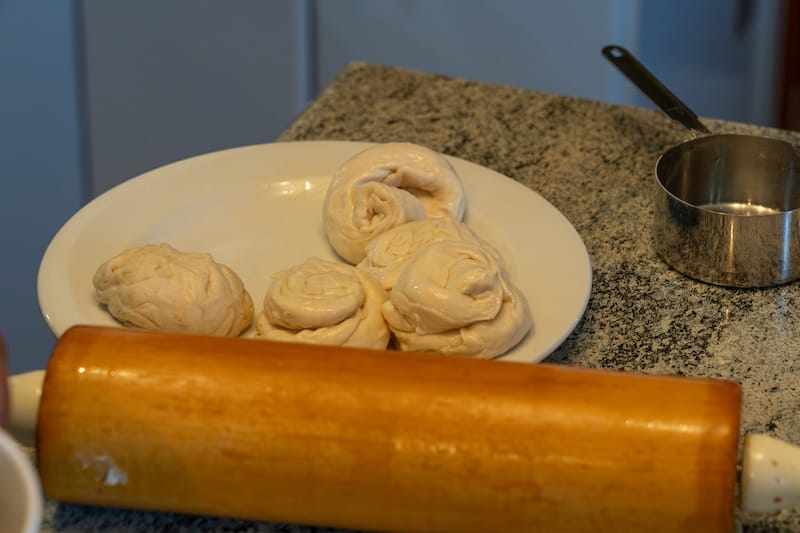
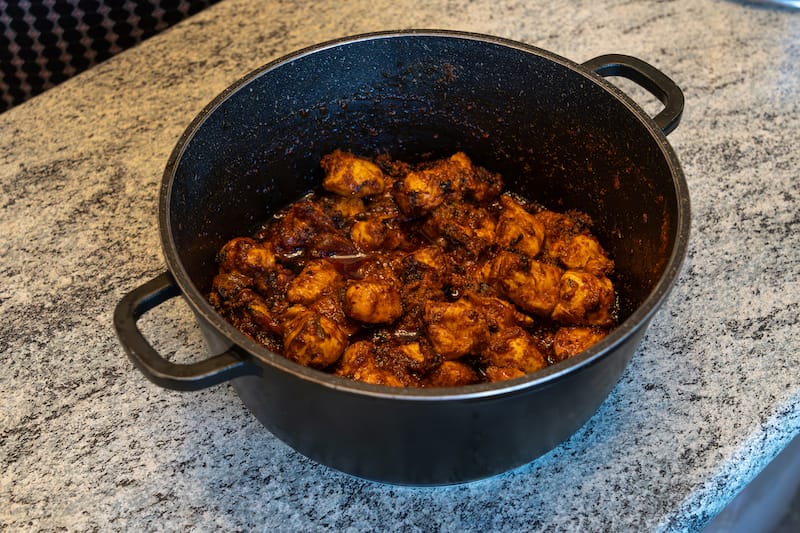
For dessert, we prepared koeksisters, the fried donut-like cakes with cinnamon and cardamom that I discussed briefly above. They are a Cape Malay cuisine icon and are sprinkled with coconut after being dipped in syrup. These were heavenly!
Once all was prepared, Ed and I were able to sit down and enjoy our (our = his) creations. It was all so tasty and we even had some to take back to our guesthouse with us for a late snack.
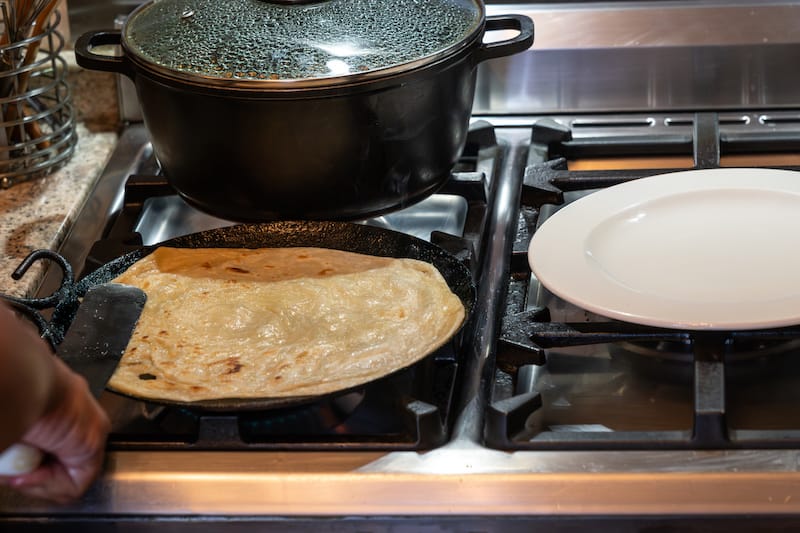
After the class was finished, Shafeeqah and Niemah sent us the recipes so we could recreate all of the dishes at home, which was the best souvenir we got in Cape Town!
Other Cape Town Food Experiences You Might Enjoy
Cape Town is a food-lover’s paradise! Besides this Cape Malay food course, there are plenty more wine and food experiences available. Here are some of my favorite picks:
- Franschhoek wine tram hop-on hop-off (bucket list experience)
- Sip 15 wines on a 3-region wine tour with cheese (top-seller!)
- Traditional wine & braai (BBQ) experience (I am planning to do this next time)
- Authentic African cuisine cooking experience (you’ll make the best dishes at Pahari Restaurant)
Do you have any questions about taking a Cape Malay cooking class in Cape Town? Let me know in the comments. Thanks!
More Cape Town Travel Guides
- Snorkeling with seals in Cape Town
- What to do in Camps Bay
- Cafes in Cape Town
- Best Cape Town tidal pools
- Best beaches in Cape Town
Pin this Cape Town Cape Malay Cooking Class Guide
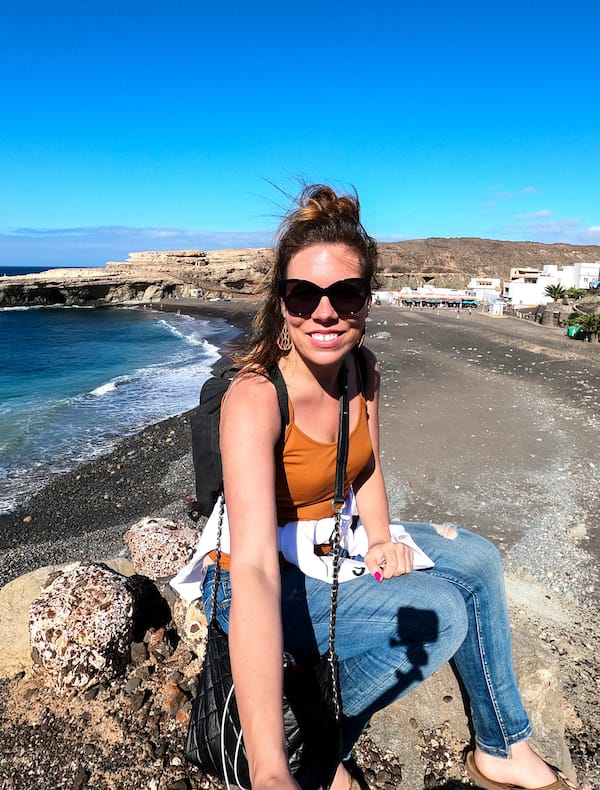
Megan is a travel blogger and writer with a background in digital marketing. Originally from Richmond, VA, she now splits her time between Frankfurt, Germany and Arctic Finland after also living in Norway, Armenia, and Kazakhstan. She has a passion for winter travel, as well as the Nordic countries, but you can also find her eating her way through Italy, perusing perfume stores in Paris, or taking road trips through the USA. Megan has written for or been featured by National Geographic, Forbes, Lonely Planet, the New York Times, and more. She co-authored Fodor’s Travel ‘Essential Norway’ and has visited 45 US states and 100+ countries.

